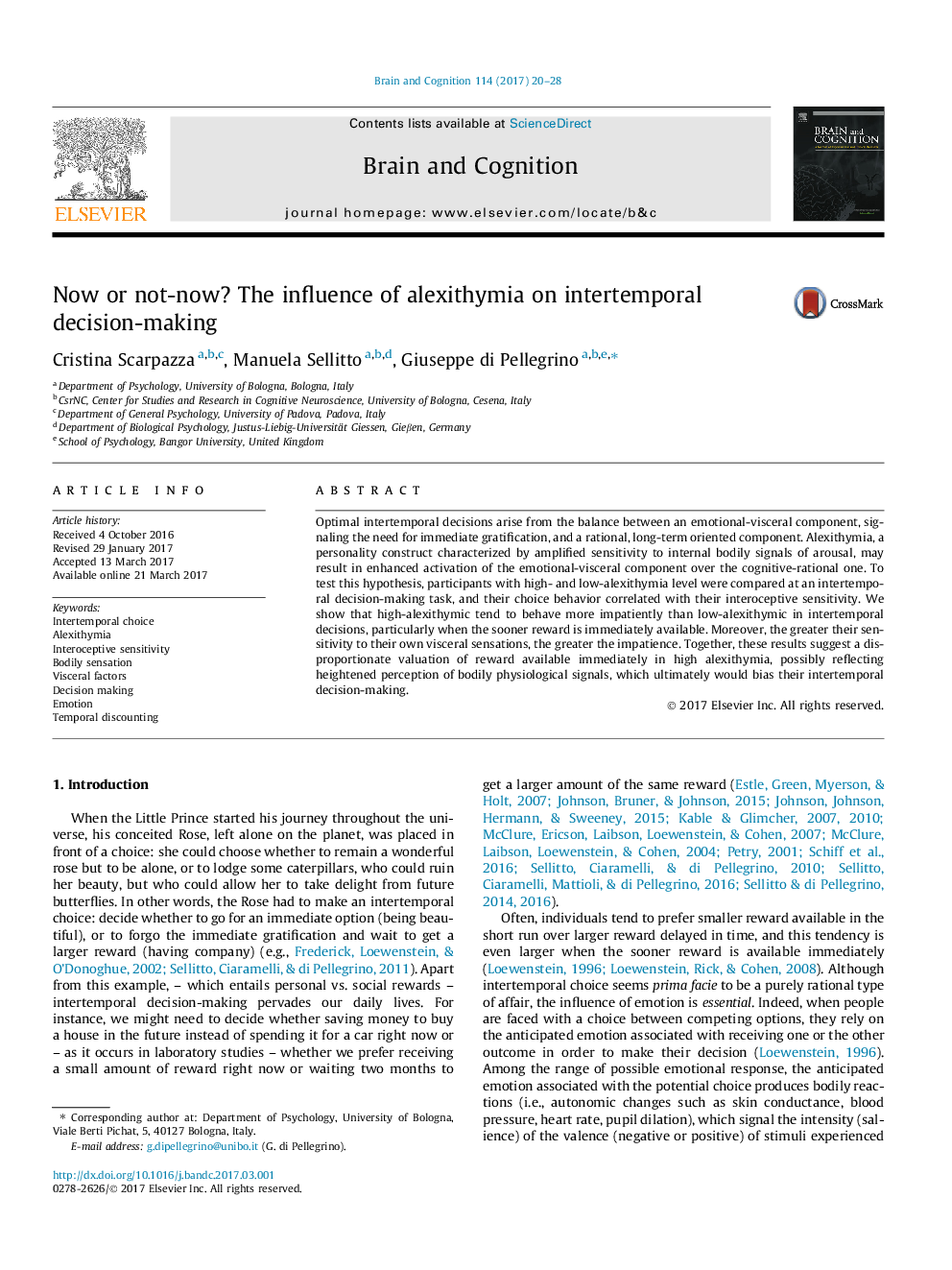| کد مقاله | کد نشریه | سال انتشار | مقاله انگلیسی | نسخه تمام متن |
|---|---|---|---|---|
| 5041131 | 1473957 | 2017 | 9 صفحه PDF | دانلود رایگان |
- Intertemporal choices arise from the balance between visceral and rational components.
- Alexithymic behave more impatiently than not-alexithymic in intertemporal decisions.
- In alexithymia the sensitivity to visceral sensations correlates with impatience.
- Disproportionate valuation of reward available immediately is observed in alexithymia.
- This reflect alexithymic heightened perception of bodily physiological signals.
Optimal intertemporal decisions arise from the balance between an emotional-visceral component, signaling the need for immediate gratification, and a rational, long-term oriented component. Alexithymia, a personality construct characterized by amplified sensitivity to internal bodily signals of arousal, may result in enhanced activation of the emotional-visceral component over the cognitive-rational one. To test this hypothesis, participants with high- and low-alexithymia level were compared at an intertemporal decision-making task, and their choice behavior correlated with their interoceptive sensitivity. We show that high-alexithymic tend to behave more impatiently than low-alexithymic in intertemporal decisions, particularly when the sooner reward is immediately available. Moreover, the greater their sensitivity to their own visceral sensations, the greater the impatience. Together, these results suggest a disproportionate valuation of reward available immediately in high alexithymia, possibly reflecting heightened perception of bodily physiological signals, which ultimately would bias their intertemporal decision-making.
Journal: Brain and Cognition - Volume 114, June 2017, Pages 20-28
